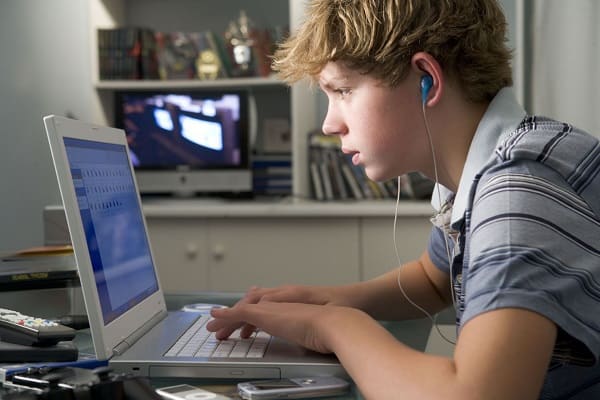 There is a growing body of research that indicates how deeply our brains are wired to seek social approval. For example, a study done at Harvard in 2012 indicated that humans devote up to 40 percent of our time to self-disclosure, and that doing so can be as pleasurable as eating food or having sex. It therefore ends up not being a surprise that social media sites such as Instagram, Twitter, Facebook, and Snapchat have taken center stage in many teen’s lives. If you walk by a group of teenagers today, you will likely see them interacting with their phone just as much (if not more) than with each other. Selfies are taken. Pictures are snapped and then filtered. Groups of friends are photographed together. And all of this is mostly done with the intention of sharing it via social media.
There is a growing body of research that indicates how deeply our brains are wired to seek social approval. For example, a study done at Harvard in 2012 indicated that humans devote up to 40 percent of our time to self-disclosure, and that doing so can be as pleasurable as eating food or having sex. It therefore ends up not being a surprise that social media sites such as Instagram, Twitter, Facebook, and Snapchat have taken center stage in many teen’s lives. If you walk by a group of teenagers today, you will likely see them interacting with their phone just as much (if not more) than with each other. Selfies are taken. Pictures are snapped and then filtered. Groups of friends are photographed together. And all of this is mostly done with the intention of sharing it via social media.
Mental health consultants across the country though have indicated that social media has become an anxiety-provoking factor. According to anxiety.org, this is due to the following experiences that teens have while using social media:
- Comparing their own experiences to those posted by others – People tend to post pictures of the fun things that they are doing. Some of these pictures may also be doctored by using filters, which may lead to their experience appearing even better than it was in real life. Scrolling through these pictures though can lead to your teen feeling as though they are not out living life in the same ways that others are and that their experiences are less exciting and appealing.
- Comparing their number of followers to others – Teens have indicated that it is the number of followers that is most important to them, not the quality of those followers. Therefore, feeling as though you have less followers, less “likes” or less retweets can lead to anxiety.
- Fear of missing out – Teens may see their friends and classmates posting pictures of themselves out doing things and might feel left out.
- Addicting nature of social media – A study by the University of Chicago indicated that social media can be more addicting than cigarettes. According to Graham Lavey, PhD, this addiction can then also interfere with physical and psychological well-being.
How do I help my teenager combat anxiety caused by social media?
- Help your child take an objective look at the media that they are viewing. Have them ask questions such as is this picture an accurate portrayal of this experience? Has it been filtered? Remind them that this picture was taken at one moment in time – one that the person thought was worthy enough to share – but that there are many moments throughout their day that they chose not to share.
- Encourage your teen to take a look at the effect that social media is having on them. Are they comparing themselves to others? Are they spending time taking several pictures to find “just the right one” to post? Are they feeling the need to filter their pictures to make them look better?
- Limit the amount of time that your teen spends on their phone.
- Have them put their phones away at bedtime.
If your teen seems to be addicted to social media or if its use is leading to significant symptoms of anxiety and depression, it may then be important to seek professional therapy for your child.
Resources used for this blog:
http://www.nbc15.com/content/news/Instagram-giving-teens-anxiety-and-depression-454121863.html





